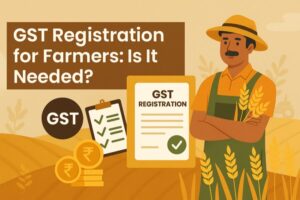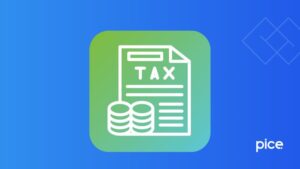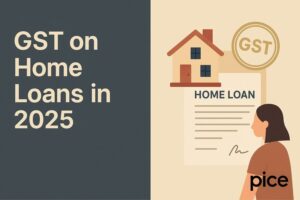What Happens If a Supplier Does Not Pay GST in 2025?
- 28 Jul 25
- 9 mins

What Happens If a Supplier Does Not Pay GST in 2025?
Key Takeaways
- Buyers can only claim Input Tax Credit (ITC) if the supplier has deposited the GST via GSTR-3B, as per Section 16(2)(c) of the CGST Act.
- Rule 37A mandates ITC reversal by buyers if the supplier fails to report the invoice in GSTR-3B despite declaring it in GSTR-1.
- No interest is payable if ITC is reversed before 30th November of the following financial year, but 24% interest applies beyond that.
- Buyers can reclaim reversed ITC once the supplier files GSTR-3B and pays the applicable tax, even after the statutory deadline.
- To avoid ITC issues, buyers should engage with GST-compliant suppliers and monitor invoice reflection in GSTR-2B.
Suppliers might fail to pay Goods and Services Tax (GST) for their supplies and transactions. In such a case, the tax authorities cannot claim tax liabilities from the buyer. This is under the proviso of Section 16(2)(c) of the CGST Act, 2017 (Central Goods and Services Act, 2017). Learn in detail what happens if a supplier does not pay GST and the following ITC reversal provisions here.
Background of Section 16(2)(C) of the CGST Act, 2017

Under Section 16(2)(C) of the CGST Act, 2017 recipients of goods and services can claim an input tax credit (ITC) solely if the concerned supplier has earlier deposited the tax with the government.
In reality, this can be quite challenging, as it's not feasible for a buyer to constantly monitor the supplier’s actions or ensure daily compliance just to avail ITC.
In such a scenario, the supplier has to pay taxes in cash or should have settled it through an eligible ITC. The tax authorities cannot ask for tax liability from the purchaser if the supplier fails to pay taxes unless there is an appropriate investigation. It can only be asked by the tax officials on an appropriate recovery proceeding initiated against the default supplier.
To prevent future complications regarding Input Tax Credit, it is strongly recommended to work only with registered and trustworthy suppliers.
Overview of Rule 37A of GST
The compliance clauses (c) and (d) of Section 16 sub-section 2 define Rule 37A of the CGST Rules and are read along with Section 41(2) and its proviso under the Act. Clause (c) of the Section states that purchasers can claim ITC only if suppliers have paid taxes to the government for the respective supplies.
On the flip side, clause (d) states that if suppliers have filed GSTR-3B, buyers can claim ITC on purchases. However, Section 41(2) states that if the concerned supplier does not deposit taxes with the government within the stipulated deadline, recipients of supplies need to reverse ITC claims. This proviso enables buyers to reclaim reversed ITC when the supplier deposits the necessary tax with the government.
Here is the content of CGST Rule 37A:
Purchasers need to reverse the ITC availed on supplies, declared in GSTR-1 or Invoice Furnishing Facility (IFF), however, not mentioned in GSTR-3B. The following conditions need to be met for this rule to apply:
- The purchaser has availed ITC on invoices in accordance with the records in GSTR-2B.
- Concerned suppliers have not paid taxes on the invoices or debit notes.
- The supplier has not filed GSTR-3B for the concerned invoice or debit note.
Who Needs to Comply with CGST Rule 37A?

Here are the persons entitled to adhere to CGST Rule 37A:
- Those filing GST returns in Form GSTR-1, GSTR-3B (monthly returns) and IFF (quarterly returns) with eligibility to claim ITC need to comply with Rule 37A of the CGST Rules.
- Individuals making interstate and intrastate purchases, paying IGST, CGST and SGST, and wanting to claim input tax credit, need to adhere to the rule.
Time Limit for ITC Reversal Under Rule 37A
Here is the time limit for input tax credit reversal under the rule:
| In which GSTR-3B are the invoices/debit notes reported by the supplier? | Do Purchasers Need to Reverse ITC? | Do Purchasers Need to Pay Interest? | |
| Supplier filed GSTR-3B on or prior to 30th September of the year following the concerned financial year. | No need to reverse the ITC claimed earlier. | Not applicable | |
| Supplier filed GSTR-3B on or after 1st October of the year following the necessary financial year. | ITC earlier claimed needs to be reversed in GSTR-3B. | Purchaser filed GSTR-3B is filed on or before 30th November of the year following the financial year. | No |
| Purchaser filed GSTR-3B is filed on or after 1st December of the year following the concerned financial year. | Yes | ||
Taxpayers might find the GSTR-3B tax periods referenced in the rule confusing. Therefore, it's best to follow the government's clarification, which extended the annual ITC claim deadline to 30th November of the following financial year.
Notably, GSTR-3B files on or prior to 30th September indicate the following:
● In case the supplier files a monthly return, this refers to the GSTR-3B filed for the August return period of the year following the relevant financial year. For example, August 2025 for FY 2024–25.
● If the supplier files quarterly GSTR-3B returns under QRMP (Quarterly Returns with Monthly Payment), this refers to the GSTR-3B filed for the quarter ending in June of the year following the financial year. For example, April–June 2025 quarter for FY 2024–25.
Moreover, GSTR-3B filed on or prior to 30th November will indicate as follows:
● If you are a buyer filing a return every month, it refers to the GSTR-3B for October of the year following the relevant financial year. For example, October 2025 for FY 2024–25.
● If you file quarterly returns under the QRMP scheme, it refers to the GSTR-3B for the quarter ending in September of the following year. For example, July–September 2025 quarter for FY 2024–25.
Consequences of Not Complying with Rule 37A
The government will issue a GST demand notice to buyers failing to adhere to CGST Rule 37A to demand payment of tax and interest for excess ITC claimed. Under Section 50 of the CGST Act, the interest rate is 24% for excess ITC claimed and utilised till the payment date. Notably, this interest is payable if the purchaser reverses input tax credit after 30th November of the year following the concerned financial year.
Reclaiming ITC Reversed Under Rule 37A

If a buyer missed claiming ITC due to the supplier’s default on tax payment or GST payment, Rule 37A of the CGST Rules provides relaxations wherein buyers can reclaim even after the time limit. Here are the scenarios when such buyers can reclaim the ITC reversed:
● Supplier files return in GSTR-3B after 30th September of the year next to the financial year or
● Suppliers report missed debit notes or invoices for any period filed in GSTR-3B after 30th September of the year next to the financial year and
● Supplier deposits tax on debit notes or invoices after 30th September of the year following the concerned financial year.
Conclusion
Now that you know what happens if a supplier does not pay GST ensure you pay your outstanding taxes within the stipulated deadline, if you are a supplier. As a purchaser, remember to reverse the Input Tax Credit previously claimed if your supplier does not pay the tax via GSTR-3B within the specified timeframe. You can, however, reclaim the reversed ITC once the supplier settles the tax.
This helps you offset your outstanding tax liabilities for the tax period, thereby ensuring a smooth cash flow for business furtherance. A seamless cash flow can further ensure effective vendor management, vendor payments and vendor delight.
 By
By 

















